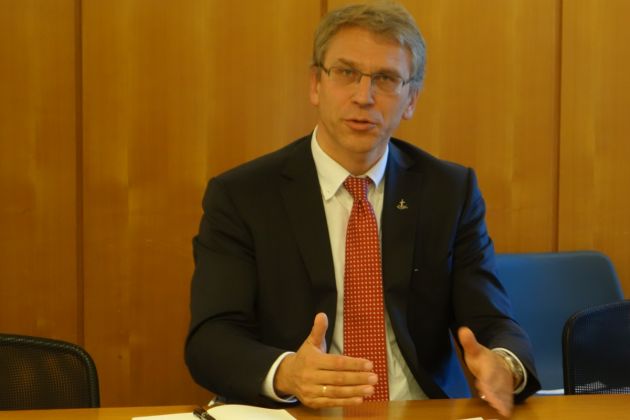US church leaders urge Obama administration to talk to Cuba

Church leaders in the United States have called on the administration of President Barack Obama to open up a high-level dialogue with Cuba aimed at normalizing relations between the two countries.
The U.S. church leaders, including denominations in the World Council of Churches, addressed an open letter to Obama earlier in May, the WCC said in a statement Thursday.
In the letter they urged the Obama administration to address issues related to the release of Alan Gross, a U.S. citizen under arrest in Cuba, and the Cuban Five, serving sentences at federal prisons in the United States.
Signatories of the letter include Baptist, Catholic, Episcopal and other Protestant leaders as well as a leader of the American Friends.
Gross is a 65-year-old U.S. national arrested in December 2009 while in Cuba working as a U.S. government subcontractor for the U.S. Agency for International Development (USAID). He is serving a 15 year for charges which include bringing satellite phones and computers to members of Cuba's Jewish community.
The Cuban Five are Cuban men imprisoned in the United States after being arrested by the FBI on Sept. 12, 1998 and convicted in a U.S. federal court in Miami in 2001 of espionage and related charges which their families dispute as invalid.
"We join our Cuban counterparts in urging your Administration to take major new steps toward pursuing a policy of engagement and normalization," said the church leaders.
"Such a policy shift will benefit the churches and civil society in Cuba, in addition to going a long way in achieving the release of Alan Gross," reads the letter.
The church leaders also urged the Obama administration to permit people-to-people travel in all categories, remove Cuba from the list of State Sponsors of Terrorism and open the opportunity for U.S. citizens to support the emerging small business and cooperative sector in Cuba.
"We pray for the full normalization of relations between the United States and Cuba, while understanding that a Congressional vote to end the embargo is not likely in the near future," the church leaders said.
The WCC said it has addressed the issue on several occasions.
A recent statement issued by the WCC Executive Committee in 2013 condemned the "negative policies of the government of the United States towards Cuba."
It noted these related, "especially the economic sanctions imposed against the country, which constitute a threat to peace and a manifestation of a policy of interference in peoples' right to self-determination."
Another resolution, adopted by at the once every seven years meeting of the WCC's highest governing body, its assembly in Busan, South Korea, urged improved U.S.-Cuba relations and the lifting of economic sanctions
WCC general secretary Rev. Olav Fykse Tveit, who has met with families of the Cuban Five on several occasions during the last few years, called on the U.S. government to grant non-immigrant visas on a humanitarian basis for spouses who have not been able to visit their husbands since their imprisonment in 1998.
"Churches in the U.S. and Cuba have worked together for many years in urging their governments to improve relations between the two countries," Tveit said.
The director of the WCC's Commission of the Churches on International Affairs, Peter Prove, said, "Dialogue and engagement are much more effective instruments for promoting justice and peace than isolation and confrontation."